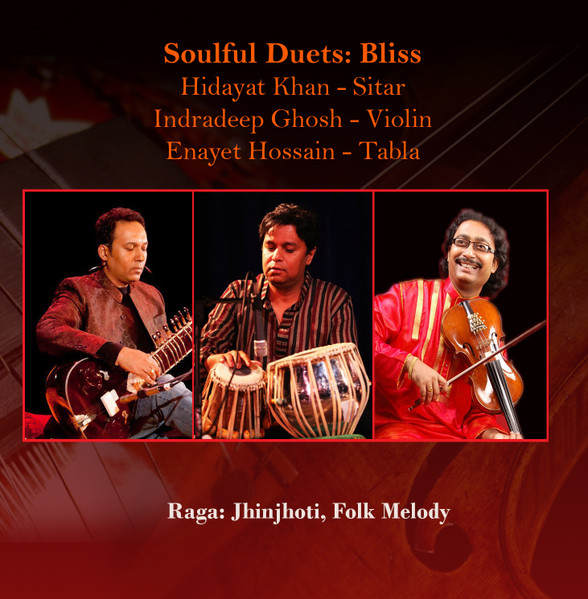
You don’t get much more blue blood in Indian classical music than this trio. Hidayat Hussain Khan is the youngest son of the man many hold up as the greatest sitar player India has ever produced, Ustad Vilayat Khan. He is also the brother of Shujaat Hussain Khan who is a frequent star of Harmonium.
Indradeep Ghosh is a new generation classical violinist who like Hidayat Hussain Khan, travel the world extensively (Houston Texas has even declared an Indradeep Ghosh Day–October 15, 2017) and often collaborates with non-Indian artists.
Enayat Hossain is a Bangladeshi-American tabla master.
All three princes’ family roots are in Bengal and they are imbued with the incredibly rich culture of that eastern part of the subcontinent.
Please read the bios. They have impressive CVs, all three.

01, Raga Jhinjhoti [Alaap]
02 Raga Jhinjhoti [Gat in Vilambit Teental]
03 Raga Jhinjhoti [Gat in Drut Teental]
04 Dhun [Folk Melody]






